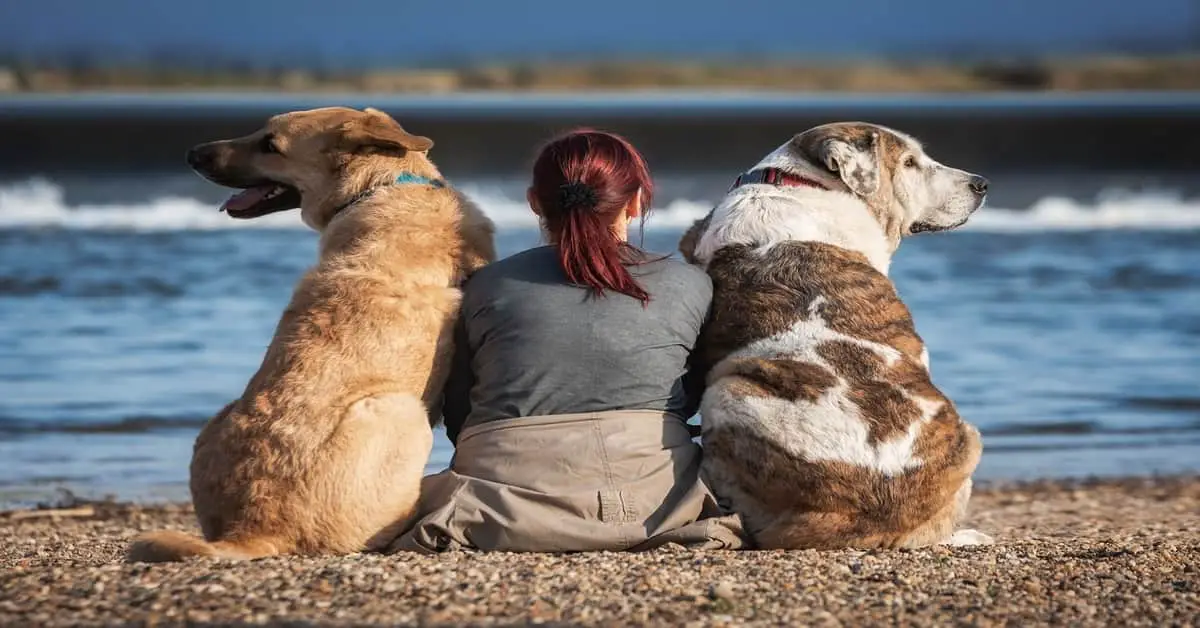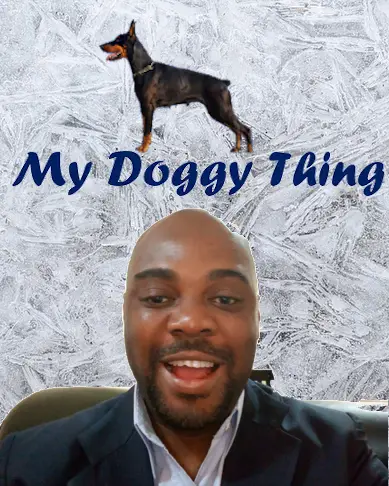HOW DO DOGS PROTECT THEIR OWNERS?

Dogs are man’s best friend!! I am sure this is a statement you may have heard time and time again. We are bombarded every day with how cute and loyal they can be with stories of how they rescued someone or put their lives in danger for another.
Dogs have been known to form strong bonds with humans and protect their owners from ancient times to date. There is this mutual trust and respect that forms as we spend more time with our dogs, but it always seems our dogs are the ones going the extra length to prove themselves leading to them trying to protect us at any sign of danger, which brings us to the question.
How do dogs protect their owners?
The simplified answer is that our dogs are always on the lookout for us in any environment we find ourselves in and would warn us of any impending danger and even risk their lives to protect us if the situation warrants it.
As we said earlier, the above is a simplified answer. To fully understand how dogs protect their owners you need to understand these categories of dogs.
Watchdogs: These are dogs that are trained to look for their owners and his or her property and alert their owners if they sense an intruder
Guard dogs: These dogs are trained to take action against an intruder in the case of a perceived threat.
Protection dogs: These dogs are trained to act both as watchdogs and guard dogs. They may or may not be natural watchdogs
Livestock guard dogs: These dogs are trained to act both as watchdogs and guard dogs but mainly for livestock
Dogs that fall into any of these categories will tend to be protective in the manner of the training they have received. But other factors can also influence how a dog would protect his or her owner.
These factors are mainly:
1. How they are integrated into the household.
A dog that grows up as part of a family unit will unavoidably develop some bond with the family members. Dogs as we have said time and time again are pack animals, they are dependent on the welfare of each other for survival. That being said, when a dog grows up within a family unit, they automatically become his or her pack. Your welfare and that of your family members become important to your dog.
Automatically, anything that your dog perceives as a threat to your or a family member must be dealt with instantly hence your dog would act as a protector in those instances.
2. Preferential treatment.
Your dog is not ignorant of the ones that give them preferential treatment in the family. These are the ones that take time to feed them, take them on walks, exercise with them, communicate with them, and bond with them just to mention a few.
These people have made themselves special to the dog so it’s in the dog’s best interest to look out for these kinds of people. You will find the dog going to extreme lengths to take care of these people.
In a sense, the dog is doing it for himself or herself. They know that if anything happens to these people or affects their schedule, it would also affect them and the goodies that come with the person.
3. Past bad experiences.
Dogs that have been abused in the past tend to be more appreciative of love and kindness when they receive it. The same reason makes them overprotective of their owners that show this love and kindness when they suspect he or she is under threat.
Stray dogs, shelter dogs, etc tend to fall into this category, there is a high possibility that they have had some bad past experiences and would be overprotective of you in situations they don’t understand.
There is also the problem of not knowing how to interact properly due to lack of socialization, separation anxiety issues, and more.
4. Enabling the protective behavior.
Some dogs are natural watchdogs, they do not need any motivation to act as your unsanctioned protector. Australian Shepherd dogs, Dobberman Pinschers, Rottweilers, German Shepherds, etc. fall into these categories easily.
But other dogs become protective as a virtue of the training they get from their owners. The dog becomes protective as a result of the instructions given to him over and over again. For some dog owners, this may be unintentional, for others, they may be doing it out of necessity to protect themselves based on where they live or some other reasons.
Enabling this behavior has negative results as you end up endangering people around you and also giving your dog the impression that you are too weak in handling some situations thereby leaving them to use their initiative instead of following your commands in a security situation.
DEALING WITH AN OVERPROTECTIVE DOG.
An overprotective dog does no one any good, they are always growling and snarling at strangers, acting aggressively even around family members, and worse of all they may attack people unprovoked.
Even if you want a protective dog, you need one which you can control. Here are some guidelines to rein in your dog if you suspect they are being overprotective.
i.) Stop rewarding the overprotective behavior.
You may have encouraged your dog either consciously or unconsciously, now is time to make a conscious effort not to encourage or reward the behavior. When your dog starts acting aggressively you can if the situation can contain it ignore your dog as he acts up or put your dog in a time-out position immediately.
This can be done by locking him or her up in their crate immediately or locking them up in a room that has been designated for them. Of course, this should be done in a limited amount of time so that your dog does not forget the reason why he or she is being reprimanded.
This sends a simple message, being overprotective or acting aggressively around people is not acceptable behavior and if you keep acting up, we would rather be without you. The normal thing with time is that your dog would understand that the behavior is not acceptable.
ii.) Change your training and exercise routine.
Switch up the training and exercise routine you have with your dog. If you haven’t started yet, normal obedience training programs like “Sit”, “Stay”, “Come” etc. Also, incorporate some exercise routines that will involve them getting rewards from a stranger.
Basically, the exercise is to imprint on your dog that good things can come from strangers if they behave well.
iii.)Start re-socializing your dog
Begin to reintroduce your dog to people around him apart from your household. Also, reintroduce him to his environment. Schedule walking schedules around your area or neighborhood. Be sure to keep your dog on a leash to have control over them at all possible times.
Seeing the way people carry on with their daily activities would help make them more relaxed and less aggressive when people come around you.
iv.) Involve an expert.
If every other thing fails, involve an expert. Talk to your vet doctor, a dog trainer, or a canine behaviorist. Getting professional advice in dealing with your dog’s overprotective nature at this stage is important.
Stray dogs and shelter dogs may have some history which they may not have dealt with, every necessary information both on your dog’s health status and past events would be important in helping an expert to narrow down the possible problem and deal with it appropriately.
IN CONCLUSION
Your dog being protective of you is something that comes naturally to them. The need to do this would be more pronounced over time as their survival is dependent on this. The main challenge for you is to be able to have control of the situation at all times. Your dog needs to have that confidence that the situation is not more than you can handle. Unless it is then you just have chaos in that case. This is definitely not what you want, or is it?

Hi, I am Charles Nwankwo Editor-in-Chief, Mydoggything.com. Gleaning from Professional Dog Trainers, behaviorist, Registered Veterinarians, and Breeders. We are passionate about making dog care easy for you. My job is to make sure that you get the best-updated dog care information to understand and take care of your dog or dogs.
